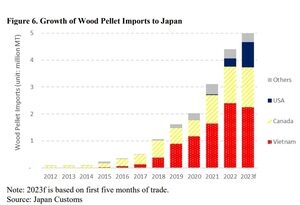EPA seeks to reconsider 31 SREs approved in 2019
Energy Disrupter
ADVERTISEMENT
The U.S. EPA on Aug. 25 filed a motion with the U.S. Court of Appeals for the District of Columbia Circuit asking the court to remand, without vacatur, 31 small refinery exemptions (SREs) approved by the agency for Renewable Fuel Standard compliance year 2018 under the Trump administration in 2019.
The motion was filed as part of a pending case brought against the EPA by Sinclair Wyoming Refining Co. in September 2019 challenging the EPA’s Aug. 9, 2019 decision on 36 SRE petitions, 31 of which were approved. Sinclair’s SRE petition was among those denied by the agency.
In its Aug. 25 motion, the EPA cites the Tenth Circuit Court of Appeals’ January 2020 decision on SREs and the U.S. Supreme Court’s June 25 decision that overturned one of the three major findings of that Tenth Circuit Court ruling. The agency said “voluntary remand without vacatur will allow EPA the opportunity to reconsider its action in light of these intervening decisions.”
“Following the Supreme Court’s decision, EPA plans to consider what, if any, impact the remaining holdings in the Tenth Circuit’s decision may have on EPA’s implementation of the small refinery exemption provision generally, and what, if any, resulting impact that may have on the small refinery petitions adjudicated in the Decision and challenged here,” the EPA said in the motion.
The Renewable Fuels Association issued a statement supporting EPA’s efforts to reconsider the 31 approved SREs. “RFA commends EPA’s efforts to reconsider the 31 small refinery exemptions issued by EPA for compliance year 2018,” said Geoff Cooper, president and CEO of the RFA. “EPA’s own records reflect the fact that these exemptions were issued without any analysis or substantiation, and it is unsettling yet unsurprising that EPA doesn’t even have the records to account for all the RINs involved in these giveaways. While RFA supports EPA’s reevaluation of these lawless exemptions, we object to EPA’s remand request because it is unaccompanied by vacatur or some kind of limitations on its review. EPA has to act promptly if it wants to restore stability and integrity to the RFS.”
















